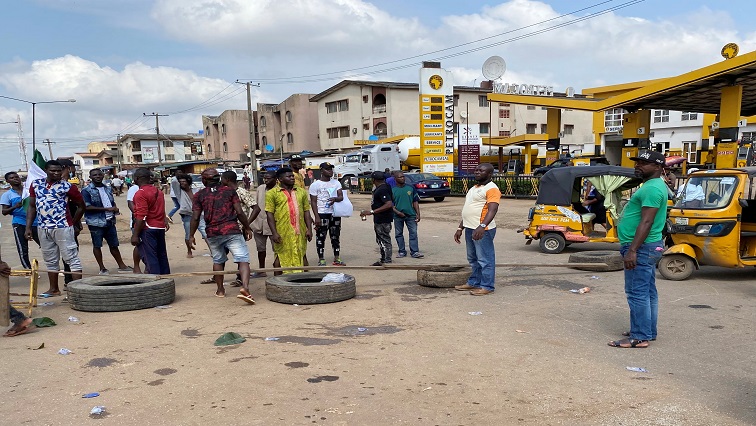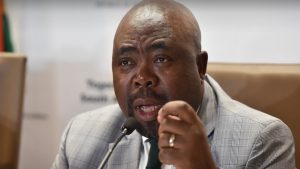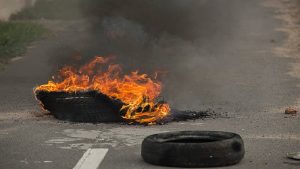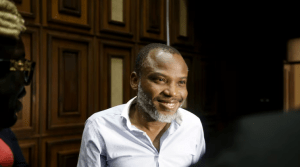Gangs armed with knives and sticks blocked major roads in Lagos on Friday, with many on the streets angered by a speech in which the president called for calm but failed to condemn the killing of protesters demanding an end to police brutality.
The unrest is the worst street violence since Nigeria’s return to civilian rule in 1999 and the most serious political crisis confronting President Muhammadu Buhari, a former head of a military regime who came to power at the ballot box in 2015.
A highway leading to the international airport was obstructed by blockades manned by groups of young men demanding cash from motorists. Petrol stations were closed and cash machines were not working in parts of the city.
Violence in Nigeria’s sprawling commercial hub, a city of 20 million, has escalated since Tuesday night, when a round-the-clock curfew was announced.
Amnesty International said soldiers and police killed at least 12 protesters on Tuesday in Lekki and Alausa, two Lagos districts. On Thursday, Amnesty, Human Rights Watch and 40 other groups demanded an immediate and thorough investigation of the incident.
Protests against alleged police brutality in Nigeria have become even more bloody:
A Nigerian DJ and musician known as DJ Switch, who broadcast the shooting in Lekki live on Instagram, on Friday recounted the incident on the social media platform. She said the military carried out the shooting and she counted 15 dead bodies.
The army has denied soldiers were at the site of the shooting, where people had gathered in defiance of the curfew.
Buhari, in a national address late on Thursday, urged youths to “discontinue the street protests and constructively engage government in finding solutions”.
It was his first public address since the shootings. He lamented the loss of innocent lives, but did not directly refer to the Lekki incident that sparked international condemnation.






